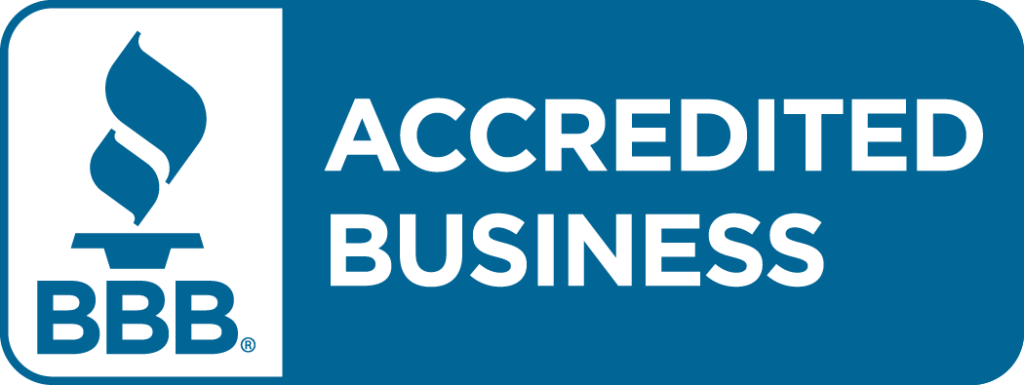
Every company wants to hire the right people–but deciding how to handle recruiting is a big choice. Managing it in-house can offer familiarity and control, but it also comes with challenges like high costs, time constraints, and limits to how far your search can go. On the other hand, working with an RPO (Recruitment Process Outsourcing) provider offers access to experienced recruiters, wider candidate options, and flexibility to adapt as your needs change.
In this article, we’ll explore how in-house recruiting compares to RPO, highlighting where RPO can reduce risks and help meet your hiring goals.
To understand how RPO can enhance your hiring strategy, it’s important to first take a closer look at the realities and challenges of managing recruiting in-house.
The Realities of In-House Recruiting
In-house recruiting puts your team in charge of every step, from creating job postings to screening candidates and scheduling interviews. This hands-on approach works well for many companies, especially when hiring needs are steady, and the process feels manageable. However, as hiring needs grow or roles become harder to fill, it can be tough to keep up.
Here are some common challenges that come with relying solely on an in-house team:
1. Reaching the Right Candidates
- Familiar Methods: In-house teams often use tools they know well, like job boards and job sites, to find candidates. These can be great resources, but they tend to focus on people actively looking for work.
What about those who aren’t actively searching but would still be open to the right opportunity? According to LinkedIn, relying only on active job seekers means missing out on up to 80% of potential candidates.
- Specialized Roles: When it comes to highly technical or niche positions, finding the right person often requires casting a wider net. Without access to specialized networks or resources, these roles can take much longer to fill, slowing down projects and creating strain on existing teams.
2. Managing Costs:
- Fixed Expenses: Salaries, benefits, and tools for in-house recruiters can add up quickly. A recruiter’s salary alone ranges from $60,000 to $85,000 per year (Glassdoor), and that doesn’t include job board fees, recruiting software, or office overhead.
- Cost-Per-Hire: According to SHRM, the average Cost to hire someone is $4,700. For positions that are hard to fill or have high turnover, these costs can climb even higher.
3. Limited Flexibility:
- Adapting to Changing Needs: In-house recruiting teams are built for steady, predictable hiring needs. But when hiring demands spike–or drop unexpectedly–it can be difficult to scale up or down without significant costs.
Over the last few years, businesses have faced massive swings in hiring volumes, and maintaining an in-house team that can handle these fluctuations often means overextending resources or making tough decisions about downsizing.
- RPO Provides Scalability: RPO providers are designed to handle these shifts, stepping in to manage high-volume hiring during growth periods and scaling back services during slower times. This flexibility helps companies avoid the financial strain of maintaining an oversized in-house team or dealing with the costs and disruption of layoffs.
While in-house recruiting offers many benefits, these challenges can become significant as hiring needs evolve. That’s where RPO can step in to provide added support and solutions tailored to your unique needs.
How RPOs Mitigate These Risks
RPO’s offer a different approach, stepping in to provide the extra recruiting support many businesses need. With dedicated resources and an expanded reach, they address challenges in ways that can complement your existing efforts.
1. Broader Talent Pools
- Reaching Passive Candidates: RPOs have the tools and expertise to connect with people who may not be actively looking for a job, but are open to the right opportunity.
According to LinkedIn’s Global Talent Trends, companies partnering with RPOs reduce time-to-till by 40% due to their ability to engage passive candidates alongside active job seekers.
- Specialized Recruiting: For hard-to-fill roles, RPOs tap into niche networks and databases to find candidates with the specific skills needed, reducing the time it takes to fill these critical positions.
2. Cost-Efficient Hiring
- Shared Resources: RPOs make hiring more cost-effective by sharing access to job boards, recruiting tools, and analytics across clients. This reduces individual costs compared to managing these resources in-house. Aberdeen Group reports that companies using RPOs save 30-40% on average per hire.
- Scalable Services: Whether hiring slows down or ramps up, RPOs adjust to your needs. This flexibility means you pay for what you need when you need it, without carrying the expense of maintaining an oversized in-house team.
3. Improved Time-to-Fill & Quality Hires
- Streamlined Processes: RPOs use proven methods and technology to make hiring smoother and faster. From managing the flow of candidates to providing tools like applicant tracking systems, their approach reduces delays and speeds up the process.
According to the Recruitment Process Outsourcing Association (RPOA), companies see a 30% reduction in time-to-fill with RPO support.
- Finding the Right Fit: By focusing on both skills and company culture, RPOs help businesses make better long-term hires. Research from iCIMS shows companies working with RPOs report 25% better retention for new hires over two years.
In addition to solving common hiring challenges, RPOs bring innovative strategies and data-driven approaches that can elevate your recruitment process beyond the basics.
The Added Value of Fresh Data and Innovation
Beyond addressing day-to-day hiring needs, RPOs also provide the data and tools that help future-proof recruitment efforts.
1. Data-Driven Recruitment
- Advanced Analytics: RPOs leverage data to match candidates with the skills and compatibility needed for success. Deloitte reports that companies using RPOs with data-driven methods see 25% better alignment in candidate fit.
- AI & Automation: Tools like AI simplify tasks such as resume screening and candidate outreach, helping to reduce time-to-hire by up to 20% (iCIMS).
2. Innovative Sourcing and Branding Support
- Employer Branding: RPOs improve how candidates perceive your company by enhancing employer branding and providing a positive candidate experience. The Talent Board found that companies with RPO support report a 10% improvement in candidate satisfaction, boosting long-term hiring success.
- Enhanced Candidate Experience: Dedicated RPO teams offer consistent and responsive communication, making the process smoother for candidates and increasing retention.
3. Industry Expertise
- Workforce Planning: RPOs help businesses anticipate hiring needs and adjust talent acquisition strategies to meet organizational goals, ensuring a proactive approach to workforce growth and change.
Research from the Boston Consulting Group indicates that companies excelling in talent management practices, including workforce planning, are 2.5 times more likely to outperform their peers in total shareholder return.
- Tailored Industry Insights: With experience across industries, RPOs bring specialized knowledge and cross-industry best practices to tackle challenges like skills gaps and competitive hiring markets. This expertise helps businesses develop hiring strategies aligned with their unique goals and industry trends.
With these advantages in mind, it’s helpful to know when partnering with an RPO is the most practical and impactful choice for your business.
When RPOs are Most Beneficial
Partnering with an RPO doesn’t mean replacing your in-house efforts–it’s about getting the right support when and where you need it most. Whether your team is thriving but temporarily overwhelmed or you lack dedicated recruiting resources, RPOs step in as an extension of your business to help you succeed.
Here are a few examples of when RPOs make the most sense:
- Handling High-Volume Hiring or Special Projects:
When hiring needs surge–whether due to seasonal demand, unexpected growth, or expanding into new markets–RPOs offer scalable support to manage the extra workload without overburdening your team.
- Supplementing a Small or Overstretched Team: If your HR team is juggling recruiting alongside other responsibilities, or you don’t have a fully defined talent acquisition function, RPOs bring the focused resources needed to fill roles quickly and effectively.
- Providing a Turnkey Solution: For businesses without an internal talent acquisition team, where recruiting is handled across multiple locations or departments, RPOs offer a seamless solution. They manage the entire process, from sourcing to onboarding, without requiring additional in-house investment.
RPOs aren’t about replacing your team–they’re about amplifying your efforts and giving you the tools, expertise, and flexibility to meet your hiring goals, no matter the challenge.
Ready to Elevate Your Talent Acquisition?
While in-house recruiting works well in many situations, the challenges of today’s job market can make it difficult to keep up. Partnering with an RPO like Randall Reilly RPO gives you access to expert support, cost-effective solutions, and a recruiting strategy tailored to your needs.
Fill out the form below to schedule a consultation and discover how Randall Reilly RPO gives you access to expert support, cost-effective solutions, and a recruiting strategy tailored to your needs.




